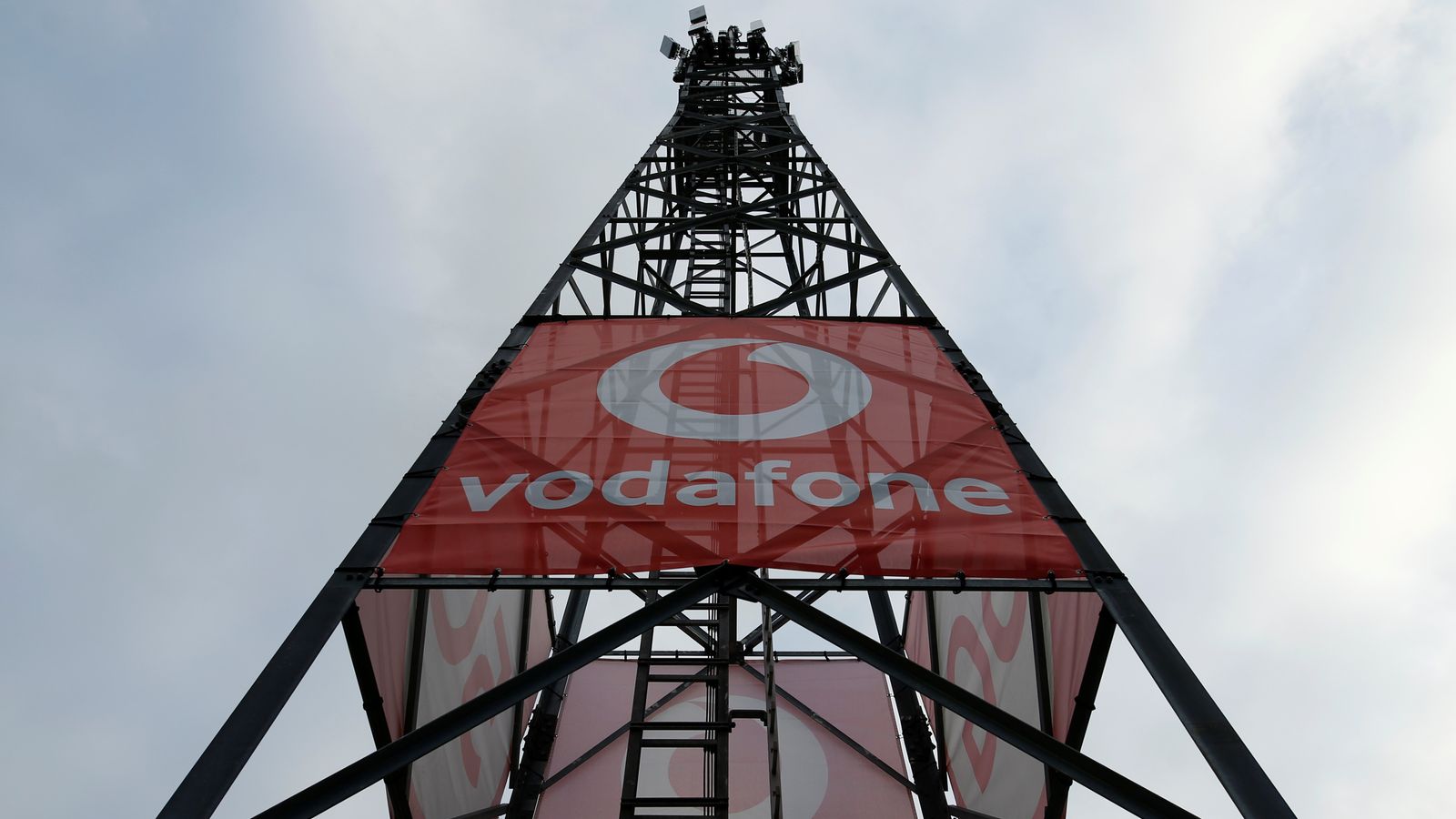How do economies become more productive?
One obvious answer is to improve connectivity – whether that is through better transport networks or broadband and mobile networks.
Yet in many parts of Europe, the latter is latter is being held back, due to poor investment returns.
That was the message today from Nick Read, chief executive of Vodafone, the mobile and broadband giant.
He pointed out that in a number of European markets, such as the UK, Spain, Portugal and Italy, returns were lower than in markets where there are fewer players.
He told analysts: “It is evident that there is significant difference in sector returns in markets with more than three major operators.
“Lower sector returns ultimately leads to lower levels of investment in next generation connectivity infrastructure.
Furlough scheme’s end led to ‘small’ number of job losses as payrolled employment soars
While an unemployment crisis may have been averted, the vacancies crisis remains
M&S makes £299 dresses available to rent for Christmas parties amid fast fashion concerns
“Ultimately, it is investment that delivers both high quality connectivity and better value for consumers.”
He said that, if Europe was to remain globally competitive, it would have to see the kind of concentration in its mobile markets that it has in its fixed-line markets.
Mr Read went on: “America sits there with three scale players on average with 95 million customers each.
“China, three players at scale, 400 million customers each. India, three players, Netherlands, three players.
“But some of our markets in southern Europe are at five players plus.
“And this is why return on capital is so low [in those countries].
“What we need to do is consolidate going forward without punitive remedies.”
He said Vodafone was trying to have “an honest conversation” with regulators and with the European Commission.
Mr Read said this was also the case in the UK.
He went on: “It remains a super-competitive environment. I mean, you’ve got some massive brands – BT/EE, Virgin O2, Sky, TalkTalk, Three. That’s a big market of players.
“In the end, what’s really important is that you have to scale locally and then we have the additional benefit of scale on a regional basis.
“And I think if we can bring the two together, we earn decent returns, and those returns mean that we can continue to invest and provide the infrastructure that governments are looking for.
“The case is clear. Returns are below market [cost of capital] in the UK and therefore need to improve.
“And therefore they [regulators] understand that – and I think that they understand there is enough competition even if there were one or two players less in the marketplace.”
He was speaking as Vodafone was reporting its half year results – and pointed to a major bounce-back from the pandemic.
Many were surprised when, last year, Vodafone indicated that it had been a victim of COVID-19 and the lockdowns it caused around the world.
It indicated as long ago as November last year, at its half-year results, that the pandemic had had an impact.
This was borne out when, in May this year, the company reported full year results that were at the lower end of expectations due to a loss of roaming revenues.
Today, with economies emerging from lockdowns around the world, Vodafone was able to point to an improvement.
There are signs the company is regaining momentum following the disruption of the previous 18 months.
At a headline level, pre-tax profits for the six months to the end of September fell from €1.927bn to €1.276billion, reflecting the fact the figures last time were flattered by a one-off gain related to the merger of Vodafone’s Australian business with the internet service provider TPG.
But Mr Read highlighted a 2.8% rise in service revenues during the period, to €19bn, and a 6.5% rise to €7.565bn in earnings before interest, taxes, depreciation, amortisation and special losses (EBITDAL), which is a way of measuring a company’s profitability stripping out financing and accounting decisions and one-off expenses and losses.
This was better than City forecasts and shares of Vodafone, which had fallen by almost 18% since the beginning of May to the close on Monday evening, rose by almost 6%.
Mr Read said the company’s return on capital was back to pre-pandemic levels and said it was on track to achieve profits for the year at the top end of expectations.
Long-standing investors may feel justified in feeling wary.
Vodafone has suffered from false dawns in the past, such as when, in November 2017, it raised earnings guidance for the first time in many years, only for the shares to lose more than half of their value over the subsequent three years.
Part of that reflects the fact that Vodafone has embarked on big write-downs in the value of some of its assets, chiefly in India, as well as the impact of the pandemic.
It also undoubtedly reflects unease among some investors about the cost of buying 5G licences around the world.
But there are reasons for genuine optimism in some cases.
In Germany, Vodafone’s biggest single market following its €18.4bn deal three years ago to become the country’s largest cable operator, earnings were up by more than 7% as the company won 80,000 new mobile customers and 50,000 new cable customers and sought to cross-sell services to customers taking only one of its core services.
Germany now accounts for 38% of Vodafone’s earnings.
Italy, Vodafone’s next most important market, also saw the company put on more broadband customers.
The UK, which is Vodafone’s third-most important market, saw slower earnings growth.
So far, so predictable.
Since Mr Read became chief executive three years ago, Vodafone’s story has been one of unglamorous hard work, seeking to drive down costs while investing to improve customer service levels, while offloading some businesses.
He can point to a number of wins as a result of that, including a big drop in mobile customer churn (a measure of the rate at which customers stop buying the service and take their business elsewhere), a fall of more than €1.3bn in costs and a sharp increase in the extent to which its networks are being used.
Unfortunately, as he admitted today, that financial and strategic progress was yet to drive shareholder returns.
He told analysts: “Whilst our strategic and operational progress has been good, we can and must do more to improve returns against the challenging backdrop of our sector.”
Vodafone still has levers to pull.
In particular, Mr Read is hopeful for progress in Germany, which has a far lower level of convergence – getting customers to buy more than one communications service from the same provider – than elsewhere in Europe.
The company is now selling personalised packages to German customers in the hope of getting more of them to buy mobile, pay-TV and broadband services from it.
The bigger prize, though, would be if Vodafone can convince regulators of the need for the consolidation it craves.






















